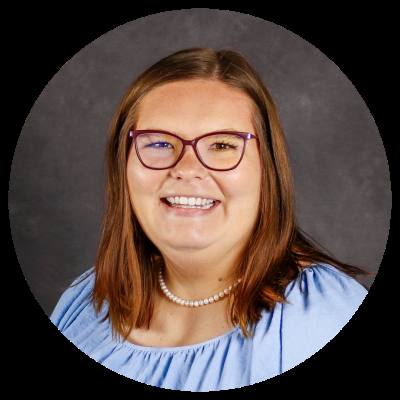Learn more about local candidates ahead of the May 1 elections.
*indicates incumbent
HOUSTON
Sugar Land City Council District 4

Carol McCutcheon*
Occupation: Sugar Land City Council Member District 4; retired engineer
Top priority: Public safety, which encompasses quality law enforcement, crime prevention, and community policing to increase the safety and quality of life in Sugar Land
Website: www.carolforsugarland.com
Why are you running for Sugar Land City Council?
CM: I am running for re-election so I can continue to be District 4’s voice on City Council and help make Sugar Land stronger and more resilient. I want to continue to work on keeping Sugar Land safe, increasing traffic mobility, and improving drainage. I want to maintain a high level of city services while keeping the tax rate as low as possible. This past year has been full of challenges. I am the candidate with the knowledge, extensive experience, and hands-on leadership skills needed to keep Sugar Land moving forward and to meet new challenges ahead.
What is the biggest challenge facing Sugar Land, and how would you address it?
CM: Sugar Land has been a fast-growing suburban city for many decades with rising property valuations. With a population of 3,000 in 1960, it has grown to about 120,000. Now the city is maturing. The infrastructure is aging and becoming more costly to maintain, while city personnel costs are increasing over time. Meanwhile, property valuations have started to flatten, and sales tax revenues have decreased due to a higher retail vacancy rate. As time goes on, housing resells will need more renovation, infrastructure will need increased rehabilitation, and commercial will need redevelopment. Reinvestment will increase the tax base and allow Sugar Land to continue to be a prominent destination.
What could Sugar Land have done better during February's extreme winter storm? If elected, what would you do to help prepare Sugar Land for similar events?
CM: During the extreme winter storm, I think the city of Sugar Land did an outstanding job. After the event, however, the collection of bulk and green waste was definitely not up to the city’s standards. The magnitude of the problem should have been recognized sooner. However, once it was realized, roll-off dumpsters were deployed, and a transfer location was created at the prison property. Debris is temporarily deposited at the transfer location and will later be transported to the landfill, which increases the time trucks are available to collect waste from neighborhoods. The city also activated a debris contract with an additional contractor.
As Sugar Land becomes increasingly developed, how should the city think about growth?
CM: The current population of Sugar Land is about 120,000. After the [extraterritorial jurisdiction] areas have been annexed, it is expected to grow to about 134,000. At this time, 93% of the land within the city limits has been developed. The housing stock and commercial development are starting to age, and market preferences are shifting. To remain competitive, Sugar Land will need to adapt and respond to the shifts. Until now, the city has focused on greenfield development. The focus will now need to move toward infill and redevelopment opportunities so the value of existing neighborhoods and commercial areas can be preserved.
What is your vision for the future of Sugar Land?
CM: My vision for the future is for Sugar Land to continue to be a wonderful place we are proud to call home: a great place to live, work and raise a family. Different cultures will be woven together to create a rich tapestry. The infrastructure and right of ways will be well-maintained. There will be beautiful parks and green spaces, plus plenty of opportunities to walk and bike. Premier businesses will continue to locate here, and we will have a community theater, top-class restaurants and entertainment, fun places to shop, and more public art.

Sakki Joseph
Occupation: Software analyst
Top priority: The main purpose of government is to help to protect citizens’ right to live and grow in peace. A healthy government has a mixture of distinctive characteristics, and it can mean different things to different people. Groups and individuals that hold positions of government must have a sense of accountability and transparency.
Website: www.joseph4sugarland.com
Why are you running for Sugar Land City Council?
SJ: I am running for City Council to build strong public safety and support law enforcement, while working on core infrastructure needs (capital improvement projects). I am running for city council on the principles of transparency and accountability: voiding wasteful spending for sustainable economic development to support local business and growth for new businesses for job creation. This does not come without its challenges. Sharing my experiences across the board can be a way of building knowledge, improving systems, and ensuring ownership and sustainability. When we fight together, we can move Sugar Land forward, not only for our children but for our grandchildren, too. And that is unquestionably something worth striving for.
What is the biggest challenge facing Sugar Land, and how would you address it?
SJ: The Brazos River erosion and groundwater reduction
What could Sugar Land have done better during February's extreme winter storm? If elected, what would you do to help prepare Sugar Land for similar events?
SJ: Sugar Land took care their people very well during winter storm. For example, supplying drinking water to different neighborhoods was [the] best example. If elected, I will focus on trash pickup. If elected to City Council, I would work with the council into researching the purchasing of an emergency power supply from [Electric Reliability Council of Texas] for Sugar Land residents along with exploring winterization options for Sugar Land’s infrastructure
As Sugar Land becomes increasingly developed, how should the city think about growth?
SJ: Sugar Land is a developing city with more room to grow. My goal would be a property tax gradual reduction while improving businesses, finding ways to expand [the] local airport and sport complex, and other development plans.
What is your vision for the future of Sugar Land?
SJ: Make Sugar Land the nation’s number one city for safety, law, property taxes and economic growth, and bring our diversified community together. [With] my talent and my two decades of professional experience in [the] corporate world [as well as my] community involvement—both national and international—[I] can bring more changes and can execute things faster in the City Council. My involvement and relationships with the different cultural communities in Sugar Land helps me understand the public's need for me to efficiently deliver results to the public and take care of their issues quickly.





